Forum Replies Created
-
AuthorPosts
-
9th April 2021 at 2:26 pm in reply to: Year 6 Computer Science Inquiry – Does Google know everything? #44501
Thanks Elizabeth. There isn’t a workbook as such for this inquiry as the teacher with whom I developed it was very keen that his pupils should have one worksheet at a time to work on, and these would all then be gathered together in their exercise books to chart the progress of the inquiry and so that they could make extra notes, such as reflecting on the different note-taking methods, along the way. For the final note-taking session, pupils were asked to choose which of the three methods they wanted to use, based on how they felt each one had worked for them in the earlier lessons. I have, however, gathered together blank versions of the different documents used at different stages to make them available here as one.
For this inquiry, several of the stage were done orally in class, hence nowhere to record the Connect and Wonder that occurred before pupils began their note-taking, nor the Express – for which they initially had the freedom to choose their own way of visually answering the question, and which this year resulted in a written paragraph – and Reflect which was again an oral reflection of the posters produced and the inquiry process.
I hope that will be of some help, and I will add some examples as soon as I am able.
Attachments:
6th April 2021 at 11:15 am in reply to: FOSIL and the IB Middle Years Programme Community | Personal Project #43602Thanks Ruth, in terms of the Community Project, the work we have done so far has been: helping pupils to consider all of the circles of community they are part of; raising their awareness about problems people in those communities might face; and helping them understand ways in which they might help. They have also been asked to make pledges for action and these will hopefully be followed up through our tutorial program (similar to your form time, I suspect) as the year progresses. As these Year 8s are those who I need to plan ahead for next year, I feel I need to take them away from the comfort zone of school into the wider world – and this is the bit that worries me the most! It will be good to bounce ideas off each other as we move forward.
The ‘Personal Project’ we run at the moment is one that pre-dates the school’s involvement with the MYP, and is one I helped to set up many (many) years ago and have been developing ever since. This is our Year 9 Individual Project, which has its very own thread in the forum, and which may continue to run in very much the same format as now, or may end up being adapted to fit the requirements of the MYP Personal Project should we end up going down that route. We will have to wait and see.
5th April 2021 at 8:10 pm in reply to: FOSIL and the IB Middle Years Programme Community | Personal Project #43447Hi Ruth – and anyone else who has experience of the MYP Community Project,
Having run some relatively successful off-timetable Community Days for our Year 7 and 8 pupils this year, I am now faced with needing to plan a full-blown MYP Community Project for next year’s Year 9s. We recently found out that this will probably be in addition to, rather than in lieu of, our Year 9 Individual Project – which we had expected to be bumped into Year 10. As the Individual Project usually launches in January, I am imagining that our timescale will be similar to the one you were planning for two years ago. If you have any material or details you can share, I would be very grateful.
5th April 2021 at 6:14 pm in reply to: Year 6 Computer Science Inquiry – Does Google know everything? #43421Having just had the pleasure of looking through some of the work produced by our Year 6 pupils over the last few weeks, I can confidently say that this inquiry does allow pupils to develop the desired skills outlined above. I believe pupils were all asked to Express their response as a written paragraph on this occasion as this was the easiest option in the blended learning environment of the past three weeks with a tight end of term deadline.
It will be good to follow this inquiry again next year, but, as with many of those undertaken in Computer Science at Oakham, after some carefully considered planning, pupils can learn the desired content while they progress through the FOSIL cycle with excellent guidance and therefore very little difficulty.
I will try to add some work examples at a later date, when my technology allows.
I don’t know if it is of any help, Elizabeth, but I worked with one of our Chemistry teachers at school last September when her Year 9 classes were looking at the development of the structure of the atom. It is not quite the same, as she had different pupils investigating different scientists and their models of atomic structure, but the way she had planned her inquiry was really unusual – for science anyway – and was partly an experiment for adapting our Year 9 teaching to meet MYP requirements. The central question to be addressed in this inquiry involved the nature of matter: Is there an underlying structure that connects all matter? and the pupils were to play the part of the different scientists/their assistants in presenting their contributions to the understanding of matter and atomic structure at a historical gathering organised by the Greek philosopher and scientist Thales.
This, obviously, was planned for more than one lesson of an hour, but the progression throughout the inquiry and the way in which the pupils were given the responsibility of providing their classmates with the material for building their own knowledge of the whole topic (through a written abstract and their presentation at the gathering) in order to assess the contribution of the different scientists to our understanding of atomic structure was a great way for them to develop many skills with real purpose – few self-respecting thirteen year olds are happy to be outdone by their peers.
From a personal perspective, my involvement was predominantly with the Investigate and Construct stages – encouraging reflective note-taking from pre-selected resources using an Investigative Journal, and bringing together the information gained using a ‘Main points from my research’ type graphic organiser to decide what needed to be included in the presentation. Unfortunately, I was unable to witness the gathering, but I was told that Thales was very impressed with the learning experience for the higher-ability class, while the lower-ability students had struggled more in the presentation of their findings so had needed more assistance with constructing their overall understanding.
It is so rewarding to have the opportunity to work with teachers like this (see also references to the Year 8 Energy Resources topic/debate in the forum) and to see that there is a real desire for inquiry-based teaching and learning in school – just not everywhere!
3rd March 2021 at 12:17 pm in reply to: Year 6 Computer Science Inquiry – Does Google know everything? #37392It is only now, a year on from my last post, as this inquiry is about to start again with a new batch of Year 6 pupils, that I realise how remiss I have been in my reflections.
As the inquiry drew to a close last year, schools were shut, final pieces of work were completed at home, photos submitted to the teacher, who then retired, and we therefore have very little evidence of the wonderful thinking and discussion that had gone on in class.
However, I can say that in terms of the INVESTIGATE and CONSTRUCT skills above that we hoped to help pupils develop, the inquiry was a great success and many of them now possess a range of note-taking skills that a much older pupil would be proud of.
We are now beginning this inquiry with pupils once again at home, but all set for an imminent return to school and I look forward to seeing what they produce.
At the end of January, when all of our pupils in school were starting to tire a little of sitting in front of a screen all day during remote learning, it was decided that the planned Community Day for Year 8 – which would have run very much along the same lines as the Year 7 one – should take place as a virtual, off-timetable, off-screen (as far as possible) event. In addition, Year 7 were to have the opportunity to take part in another Community Day too, building on the wonderful work they had done in October. As mentioned by Dmitriy above as a real positive from October, careful design of the day would be of paramount importance, especially if we were striving to ensure that MYP Service in Action objectives were being met while trying to maintain the attention of around 150 pupils sitting in their own homes with all of the added distractions available to them.
Each year group needed a slightly different approach as they were starting from different points in their MYP journey:
- Year 8 were introduced last year to ideas of community, identifying those in need of help in our local communities and formulating ways to assist BUT they had no prior knowledge of the SDGs and, more importantly, no-one had heard of COVID-19 back then. In addition, they had not previously been asked to produce posters etc as their Community Day last year had focused only on the first four stages of the cycle, in the hope of returning to it later in the year, which, of course, school closure prevented.
- Year 7 had already completed lots of work on their experiences during lockdown, global problems and possible solutions and we really wanted them to have the opportunity to do things, to think back to the pledges for action they made in October and work on them. In the end, a deep covering of snow in Oakham on the day made going out rather tricky, and digging vegetable patches virtually impossible, but never mind, they had plenty of other options.
For each year group, we had an introductory assembly in the morning, with optional drop-in meetings during the day but for the most part pupils were left to work through the activities at their own pace, therefore directing their own learning and choosing what they wanted to do in the afternoon to take action in some way. They had been sent detailed instructions in advance of the day which, if printed off, allowed them to spend most of the day away from their computers. The LibGuides, which were created as a back-up for those who had not been able to print off material, or for whom clicking on links was easier than typing in URLs for videos, give an idea of the flavour and shape of the day (F1 LibGuide, F2 LibGuide).
One thing that the Community Days really allow us to focus on is the Reflect stage of the cycle as reflection is a big part of the MYP and of being an IB learner. The activities requiring pupils to think about problems in their communities help build understanding and empathy; they allow pupils to relate what they are reading to their own experiences; and therefore they allow time for a lot of personal reflection on what they have been reading, watching, learning about and ultimately doing. This will be really important for them going forward into Year 9 and a full, largely self-directed, Community Project. This reflection will also be ongoing throughout the year, and may lead to further inquiry work when we are back in school.
I will allow Dmitriy to comment further on how successful he feels these Community Days were, but here are some examples of the thoughtful work produced (see the LibGuides for the different action task options pupils were given):
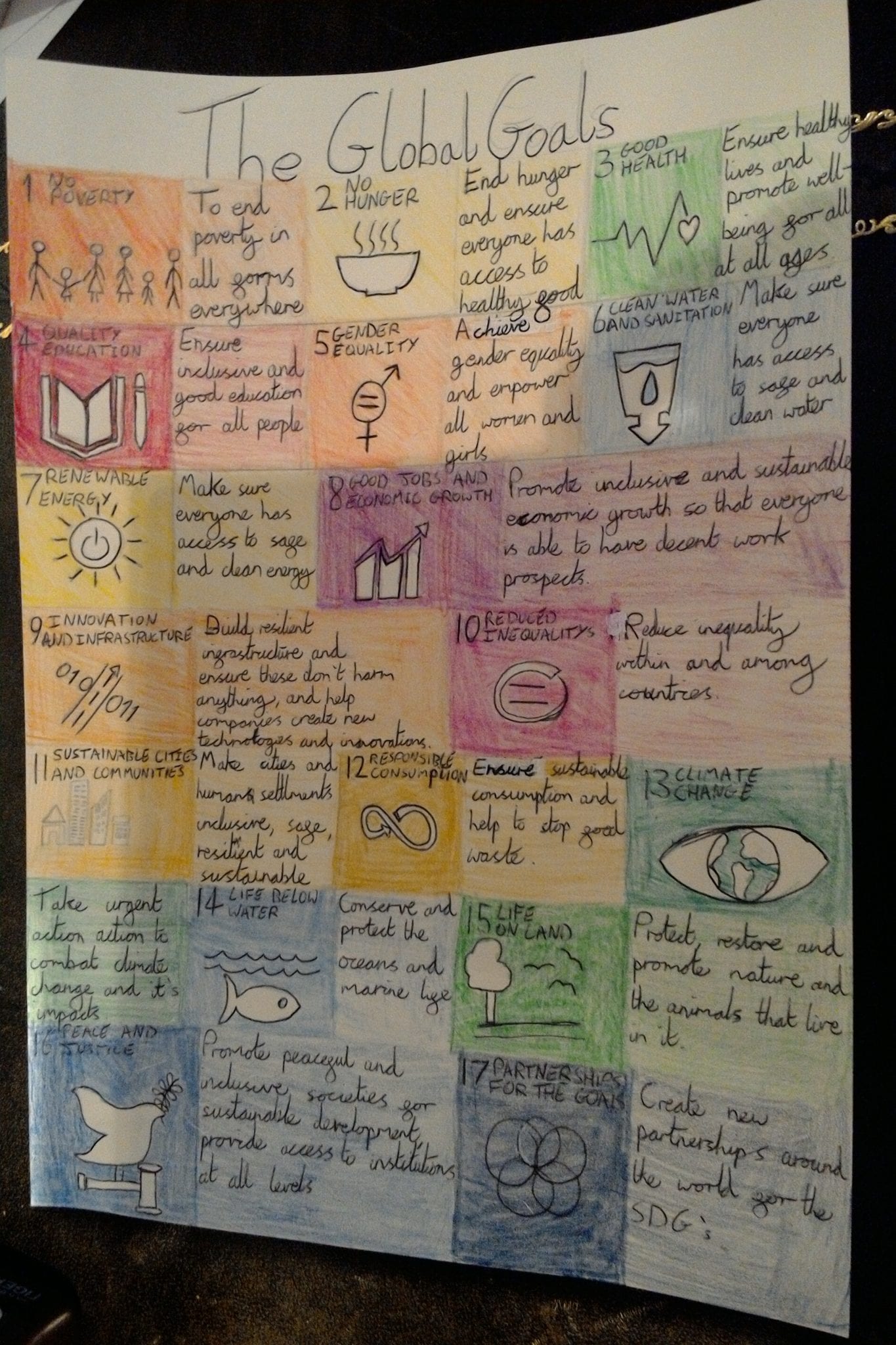
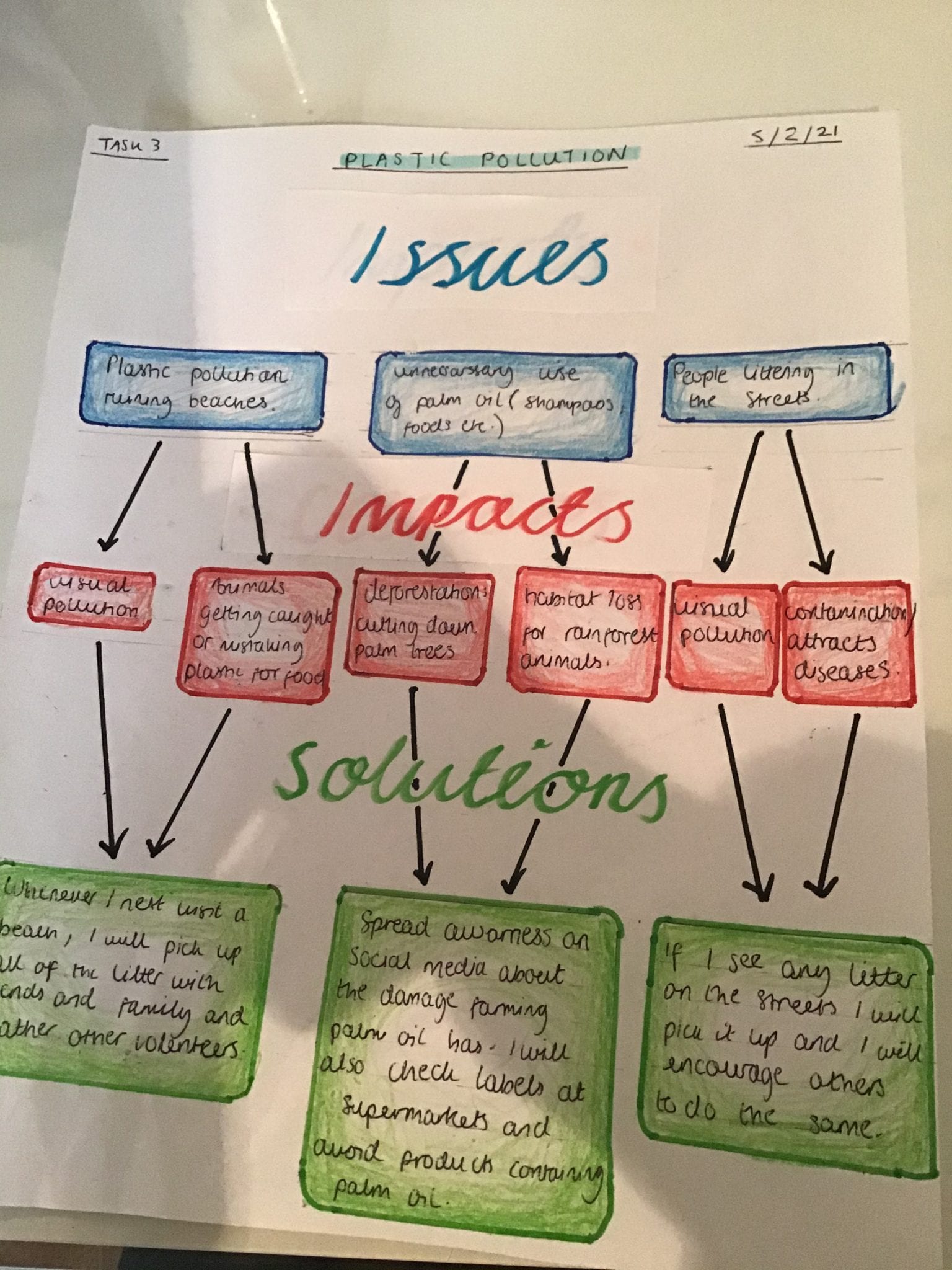
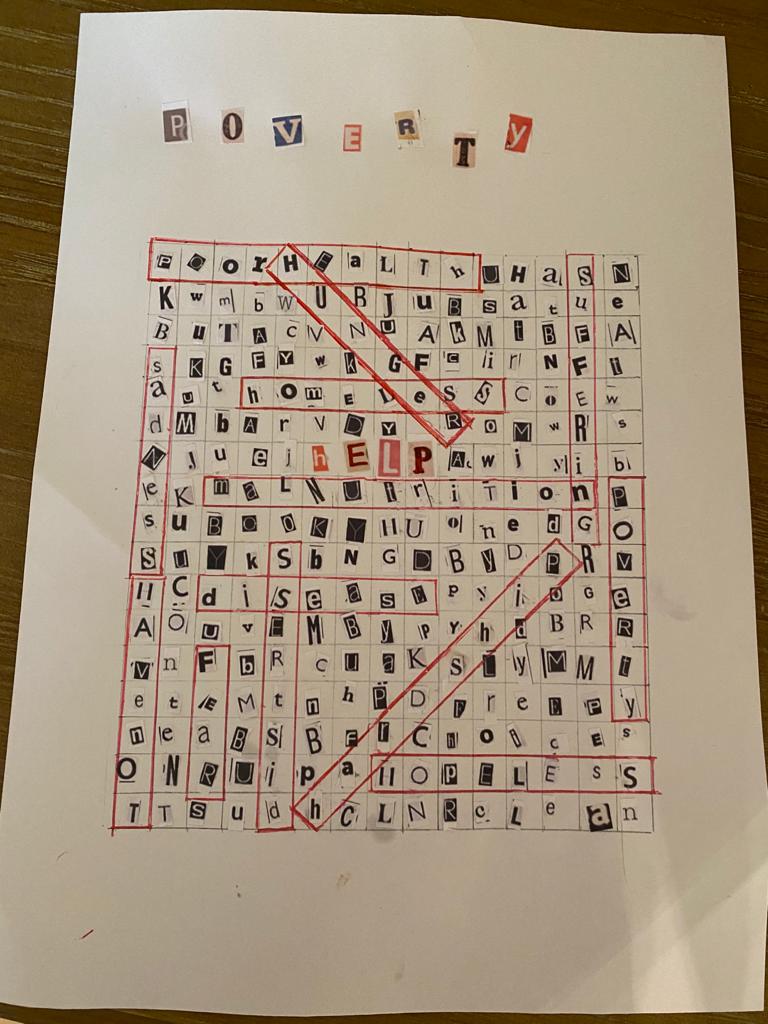
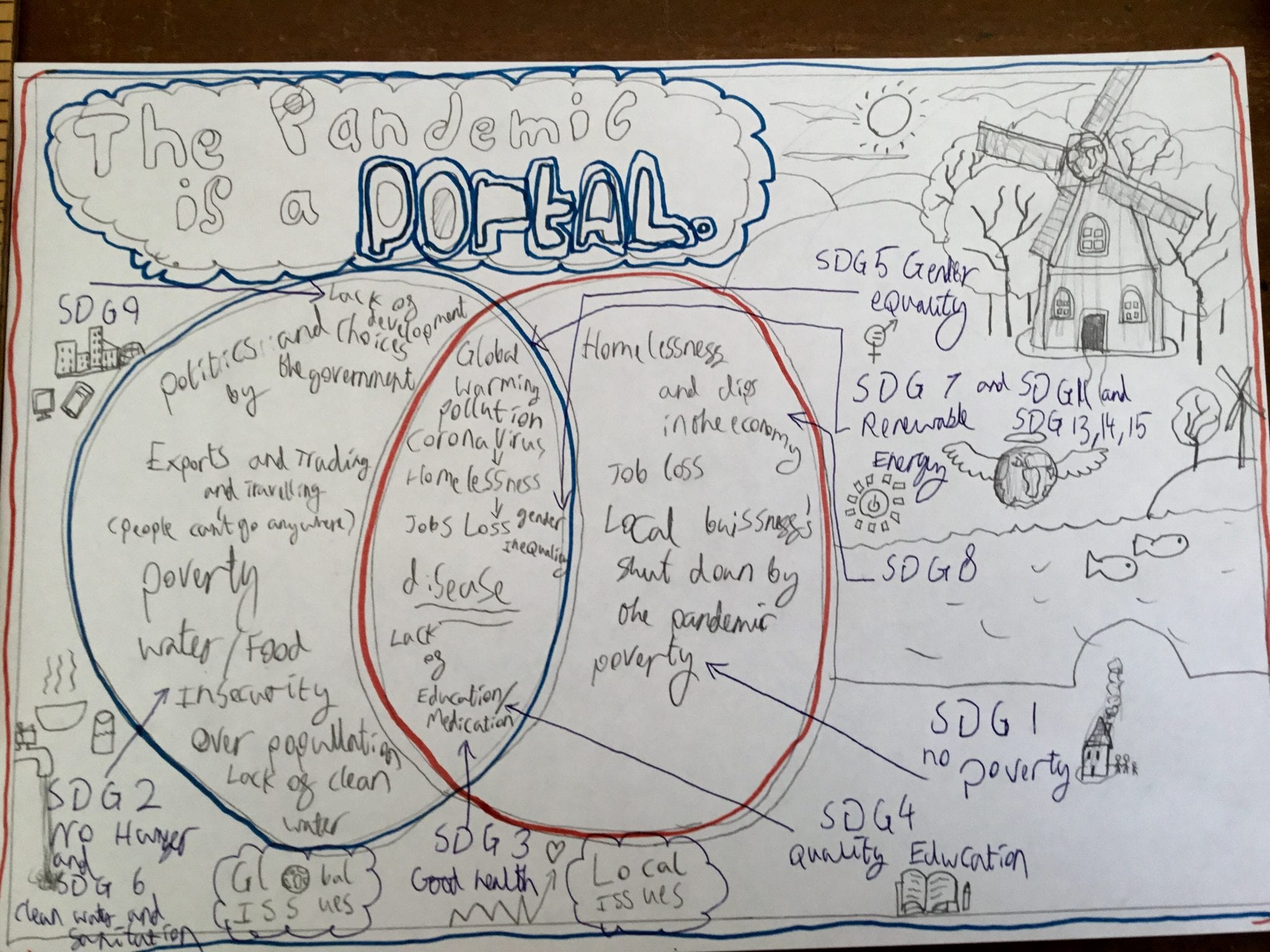
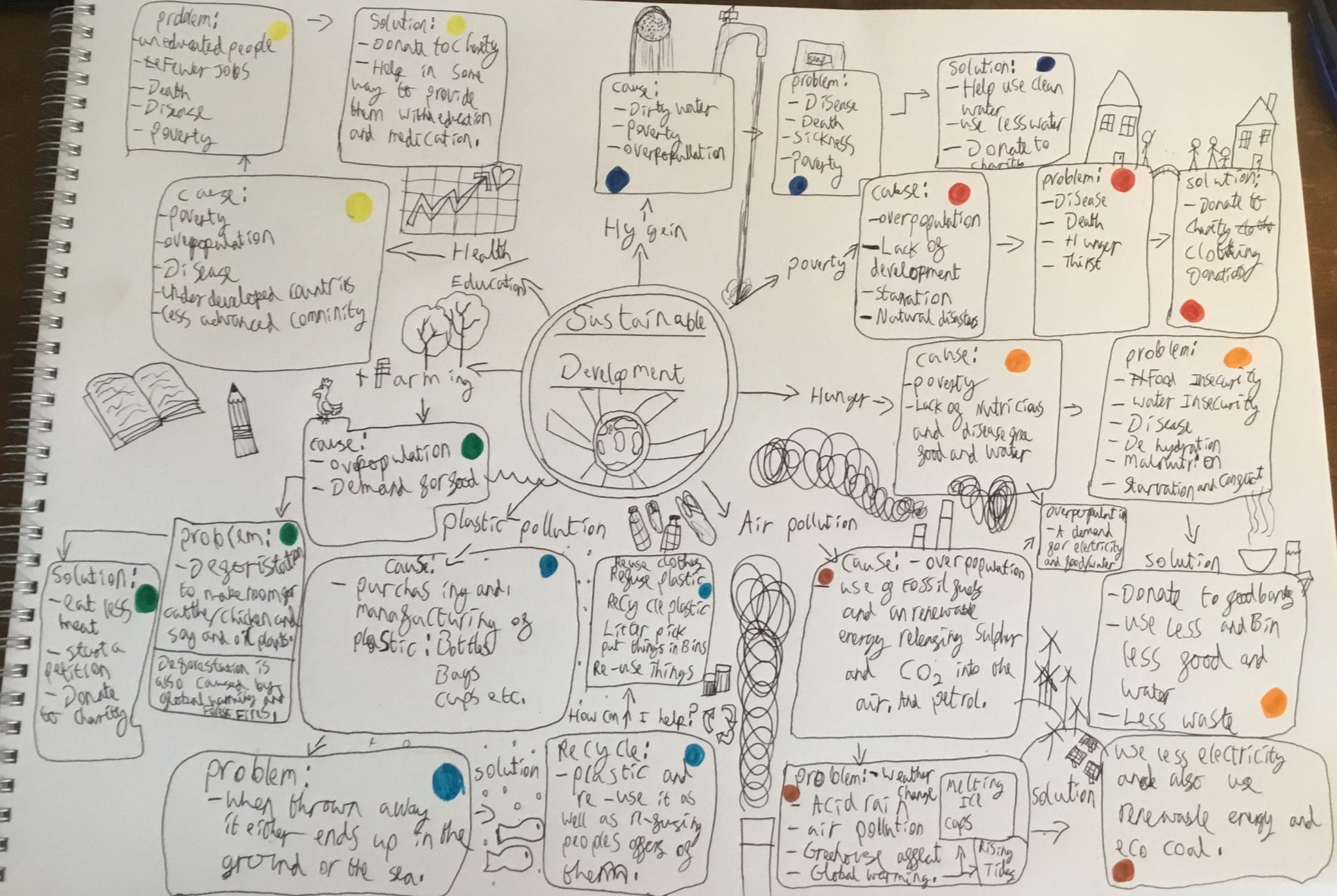
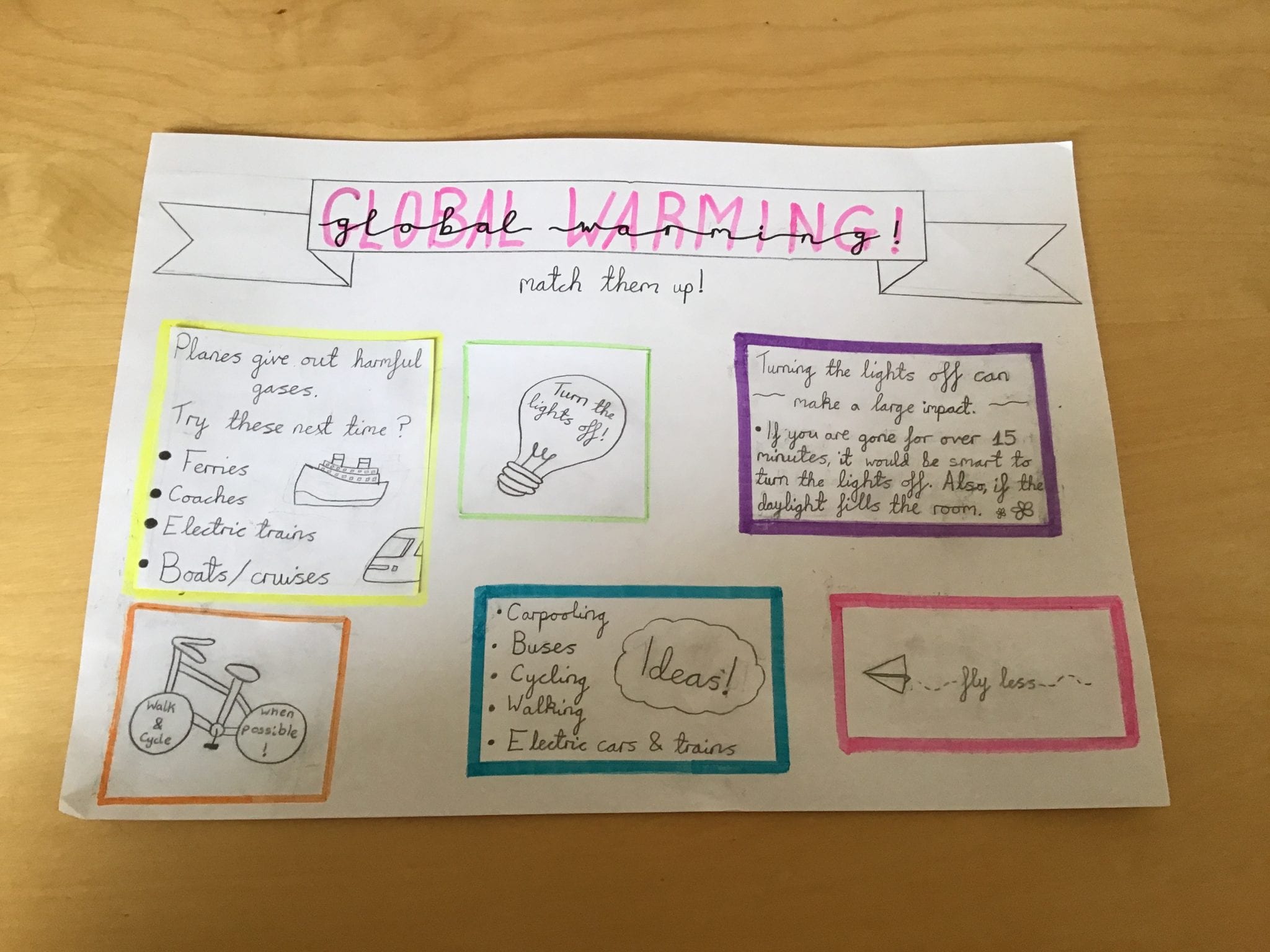
As we begin the process of the Individual Project once again with a new cohort, we are also beginning another school closure so the launch will have to take place remotely. This clearly adds another level of complexity as not only do we have to ensure that the Year 9 pupils know what they are doing, why they are doing it, and how they should go about doing it, but we also have a new set of Year 9 tutors to introduce to the project – and in some cases, to FOSIL itself. At least last year we had reached EXPRESS with everyone having written an initial draft before the first lockdown began. All that was needed remotely therefore was reviewing, polishing and reflecting. Easy really in retrospect!
I was really excited by the resources produced last year, as I felt they helped pupils through the inquiry process in the clearest way yet, so it was a great shame not to have been able to complete the whole process with the pupils in school. These resources definitely made the prospect of finishing the project online far less daunting though and led to some truly exceptional projects being submitted despite the truly exceptional circumstances. Thankfully for the project and everyone involved in its development, the outcome was so successful that it was quickly decided that this year’s project would run to the timetable that we planned in December despite the current situation, and that it would add value to the distance learning experience of our Year 9s rather than being an unnecessary burden.
I will post more as we progress but with tutor training planned for next week and a launch to pupils the week after, I must get my skates on.
Discussing and developing resources for our Classical Studies course with Richard has been really useful for me in figuring out what it is that teachers really want their pupils to get out of a topic and then working backwards from that point to help them get there as successfully as possible. While this has always been my approach, it has usually been focused around something concrete like the EE or IRP which come with relatively strict guidelines, or around inquiries that we have been developing and steering towards our own objectives.
In the case of this course, the overarching aim is to develop an interest in the Classical World along with an awareness of the ways in which the Ancient Greeks have shaped modern society. With this in mind, our first collaboration on a lesson planning, rather than background discussion level, focused on what the Ancient Olympics were and what they stood for – as this was what we had identified as the desired outcome. To this end, the Construct sheet we developed used criteria decided upon by the pupils in the Connect and Wonder Stages – what they already knew about the Ancient Olympics or wanted to know – as this allowed them to consolidate the work they had done in class – and provided an opportunity to consider what they knew about the Ancient Olympics against the modern version of the games, which was probably more relevant to their own lives – especially after the disappointment of the 2020 Games being postponed.
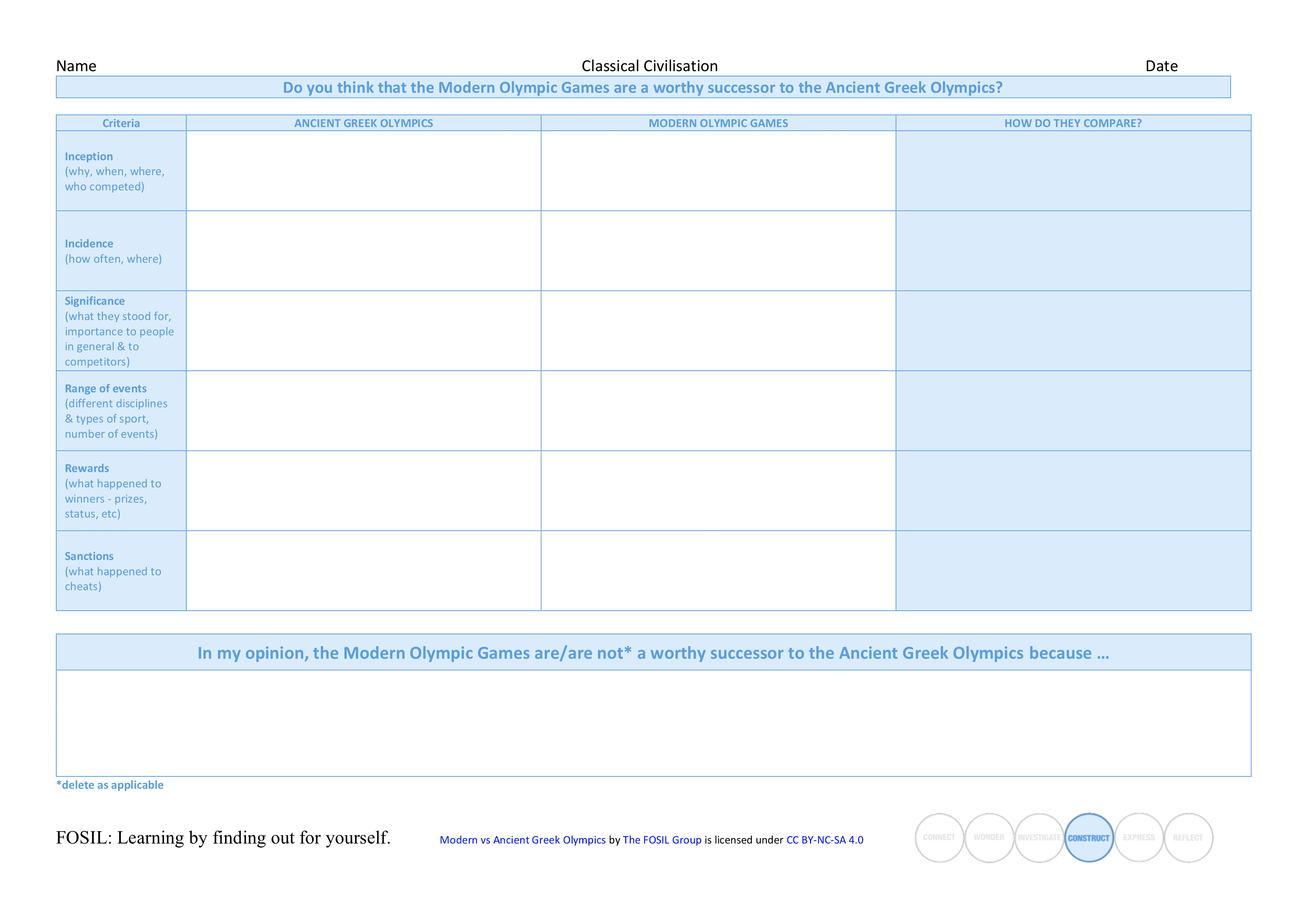
This comparison proved quite challenging for some pupils and made us realise that they perhaps needed more time to consider the comparison and what it meant than they had been allowed – or perhaps more assistance in the build up would have been a good idea.
As a result, the next topic on which we collaborated, once pupils had explored Odysseus’s journey home from the Trojan War in The Odyssey, provided them with the opportunity to go back to the journey to identify different episodes and Odysseus’s behaviour at that part in the story, before asking them to consider whether he fitted the image of an Ancient Greek hero (a topic from earlier in the course). We therefore developed two resources to steer pupils towards the desired outcome. Adding this extra step had a very positive effect on the outcome and on pupils’ general response to the chaotic, and predominantly remotely experienced, end to the topic. It also gave us food for thought over the holidays as we looked ahead to the warfare topic.
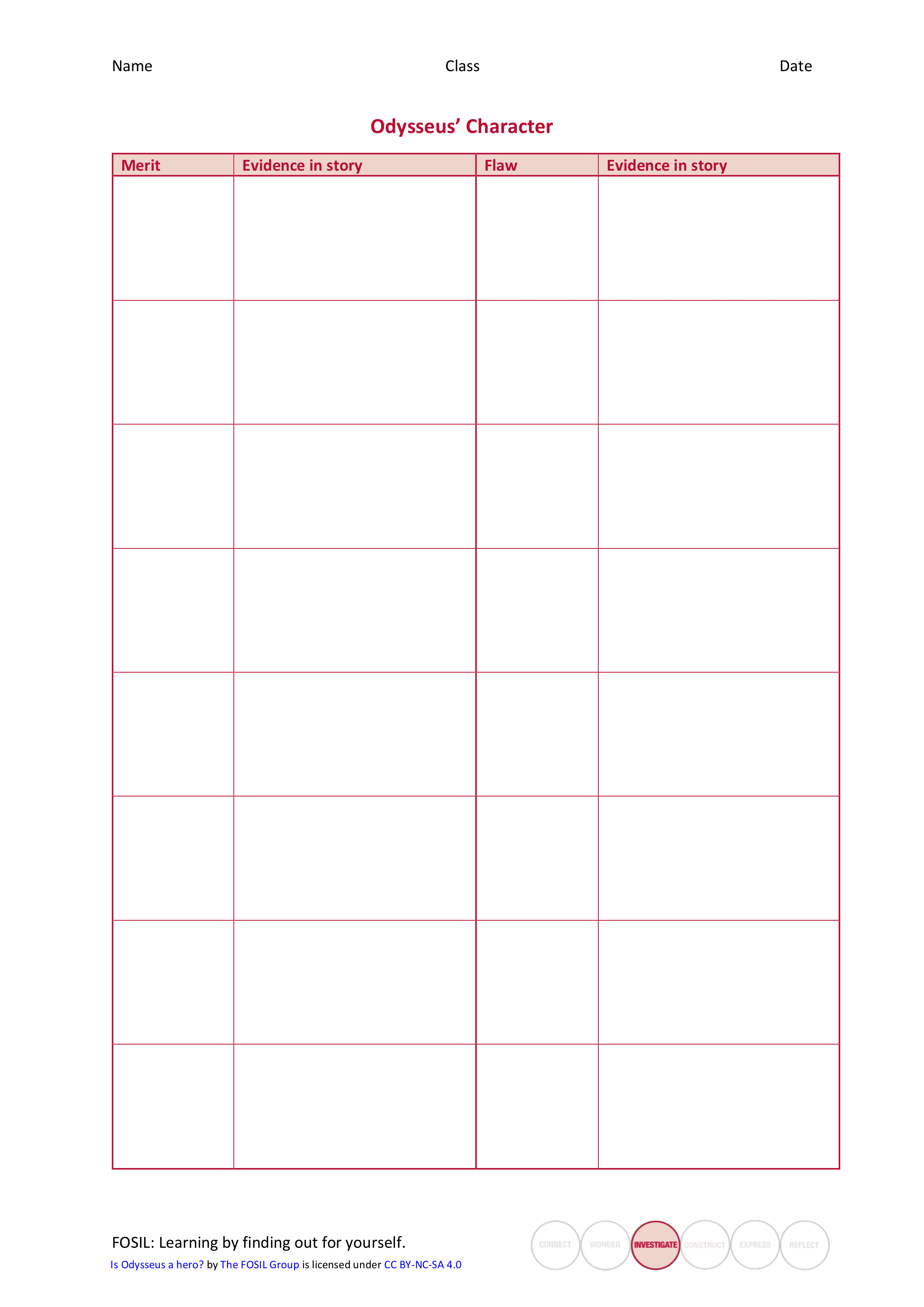
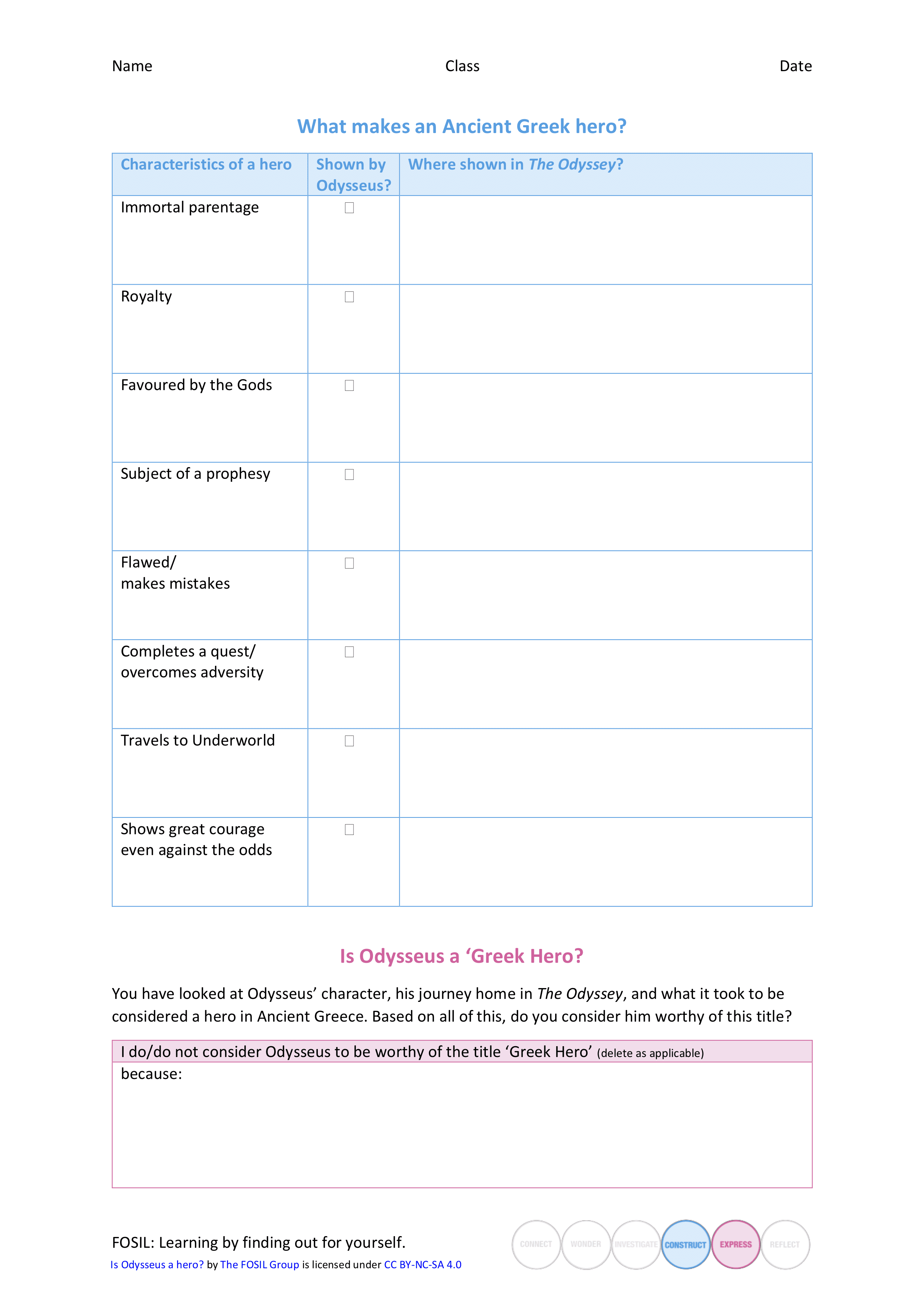
Thanks for these Jenny, and I can see how many of them might also be of use for the MFL A-level Individual Research Projects which I know you have also looked into for Spanish. It would be good to see how we can combine the ideas you have developed here with the resources I have used with French and Italian (A2 Italian Resources available for download here) in the past to try to improve our support for those students too. This could be especially important in the current climate where the IRP might count for an awful lot were exams to be cancelled again.
It would be great if we could get the MFL teachers we have worked with to post their thoughts about the processes and working with the resources here too.
In the weeks leading up to half-term, we successfully saw each of the Year 9 classes as planned and so carried out this inquiry seven times. It never ceases to amaze me that in doing the same lesson with seven groups of 13 year olds can lead to such different experiences and outcomes. In part this is because we refine the inquiry as we go through it, get quicker at delivering it as we learn which parts are going to take that bit longer than planned, or even which elements can be left out altogether – either because we are covering skills they already know, or because we find they are not actually needed in order for pupils to complete the task. Partly it is relation to the setting of the classes, which in turn affects set sizes; to how long it takes all members of the class to find the correct room; to whether enough computers in the room are working properly to accommodate everyone. This year, the main factor turned out to be whether or not the pupils had managed, under the circumstances, the required background reading and so had an understanding of what we were talking about. We learned as we went along, getting the English teachers on board to encourage or require the reading of the article just before their lesson with us, even providing paper copies of it to one class the day before. Once they knew the background, engagement improved, contributions increased and the written work became far more considered. It was clear which class had been asked to read the E. M. Forster short story, as well as the article from The Day, and which class contained not one single pupil who had managed to even read the article.
While not every class reached the point of producing responses to the question using their beautifully set-up academic writing documents, another advantage of the structure used is that we have evidence of their thinking anyway – on the worksheet above, or a version of it as it too was tweaked as we went along – and the thinking stage is the one we are really interested in them having wrestled with in this inquiry.
Having had time to recover from the experience of running the Community Day, and having had the chance to look back at what we did and achieved, the benefits to the pupils of structuring the day as we did have become clear.
It was a long day, for them and us, with the structure constrained in some ways by the facilities available at certain times – we only had computer access for pupils during session 2, so any investigating had to happen then – and the creation of the posters took a lot longer than we had anticipated. However, it was very clear that pupils had appreciated being able to discuss their own experiences of lockdown; had opened their minds to what lockdown had meant to other children around the world; and had gained a real understanding of what we might want to change after the pandemic. The thoughtful and personal responses on display in their final posters were proof of careful consideration of their own role in the circles of community in which they live and the influence they might be able to have.
In terms of FOSIL resources, different worksheets – some individual and some group – stepped them through the day, and we made use of a LibGuide to provide them with the specific websites and videos we wanted them to use for different parts of the Investigate stage. The focus of investigation for this inquiry was very much on finding and using information from within sources rather than needing to locate that information for themselves. A further resource for the Reflect stage will allow pupils to continue to reflect on the ‘pledge’ they have made as the year progresses. This will be picked up through the tutorial programme, allowing the conversation to continue in smaller groups, and will hopefully lead on to further service as action.
Thank you Julie. I just thought I would offer one final word before leaving this topic for now, in the hope that someone out there will be able to offer us more insight. I fully agree that I do not think whole FOSIL inquiries are best suited to language acquisition when the main focus is on pupils being able to use the language they have to communicate what they need to communicate as accurately as possible. This makes an inquiry approach to language learning – pupils using the knowledge they already have to access material and acquire new vocabulary and grammatical structures through doing so – far more useful than trying to plan whole inquiries in MFL – but I am not so sure that fits into the MYP way of thinking though, so for now, my search for ideas continues.
Hello Vittoria,
The one thing I would add in response to your question is that it is important, and certainly not easy, to try to put yourself in the head of the pupil, in this case a 10 year old, when considering an inquiry. The questions they come up with will not be the same as ours, many will be more basic as they have less of an understanding of the overall topic and how Alfred fits in; and some will undoubtedly be more obsure and difficult to answer – and cause us to scratch our heads a little as we try to find answers. This provides the perfect opportunity to model good inquiry skills though, so we should not be too afraid!
I hope this makes you feel a little better about Alfred.
Lucy
Thanks Julie. I would fully agree with the proposals above to take this inquiry forward, and think trying to link the beginning to another point they have already reached in their learning would make it so much easier. Geography would seem the sensible place to start and I know that this initial connect stage when introducing new topics or places in Geography lessons has been very successful. We may as well let others do some work for us that we can piggy-back on!
I think what has become very apparent is the need to get a lot more French into the inquiry at every stage, even if that means needing to dedicate more time to it overall. Language understanding and production are paramount, and the inquiry needs to be a vehicle for this rather than something extra we are trying to achieve and I think we have some good ideas of where to go next.
-
AuthorPosts




